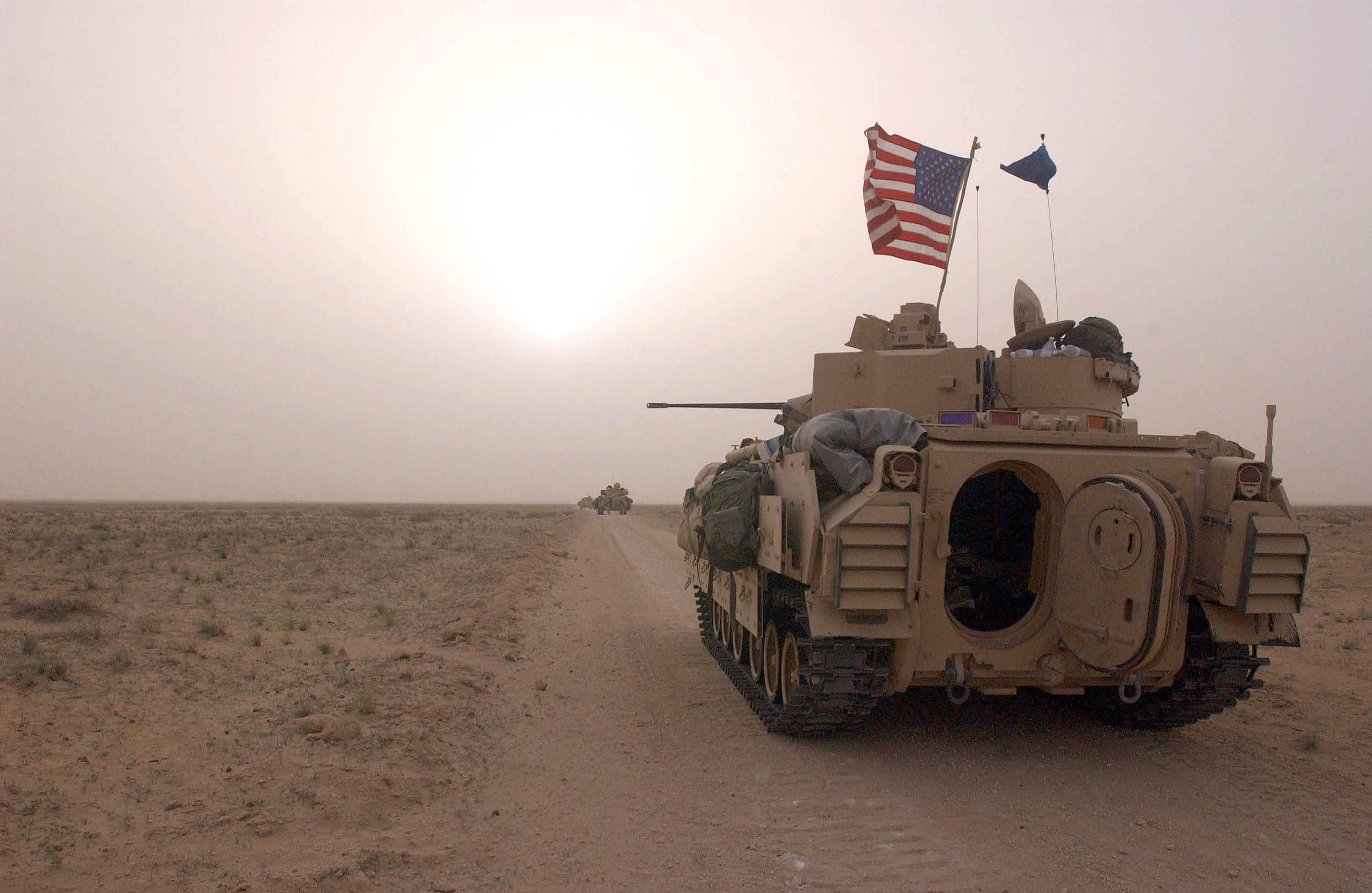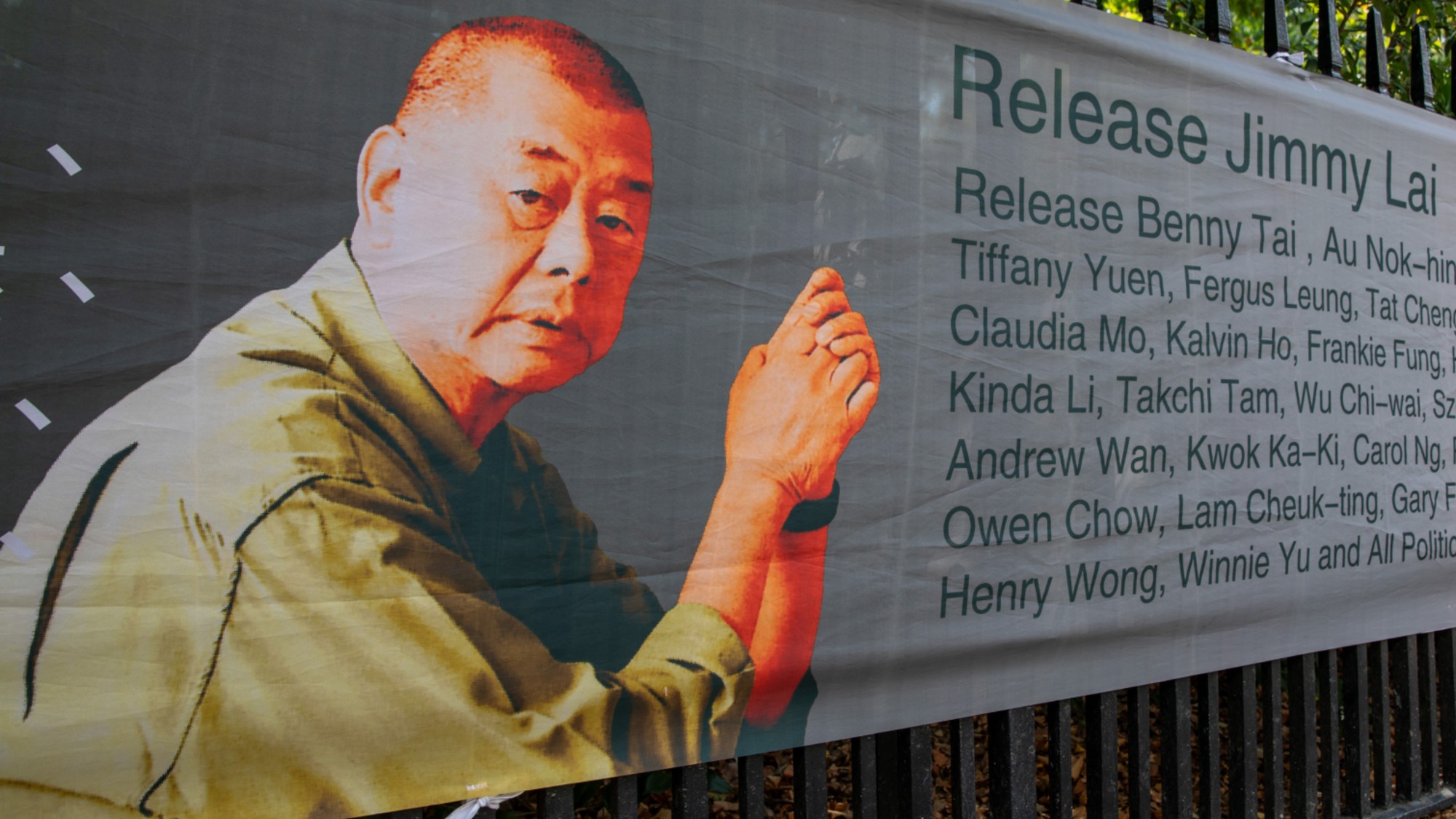How America has waged an eternal war in the Middle East
What if the last four decades of American involvement in the Middle East wasn't a host of numerous and distinct conflicts, but one long, giant war?


Every year the United States seems to be torn between further retreat from the Middle East and deeper military involvement in it.
Over the past four decades, America has bombed pharmaceutical plants in Sudan and cars from Yemen to Afghanistan. It has promoted democracy in the Palestinian territories, then subterfuge and civil war in Syria. In Iraq alone, it has tried war, sanctions, no-fly zones, shock-and-awe, regime change, withdrawal, and, now, bombing again.
Instead of seeing these and other conflicts as numerous and distinct, former U.S. Army Colonel and current professor emeritus at Boston University Andrew J. Bacevich describes it as a unified four-decade-plus struggle in his new book. In America's War for the Greater Middle East, Bacevich covers the military failures and the near-successes as a military historian. But he engages the entirety of Middle East policy as something of a prophet, where the power fantasies of America's elite and American society's decadence are as much to blame for military failure as bad planning.
The Week
Escape your echo chamber. Get the facts behind the news, plus analysis from multiple perspectives.

Sign up for The Week's Free Newsletters
From our morning news briefing to a weekly Good News Newsletter, get the best of The Week delivered directly to your inbox.
From our morning news briefing to a weekly Good News Newsletter, get the best of The Week delivered directly to your inbox.
In Bacevich's telling, our long war in trying to shape the Middle East was precipitated by the oil shocks of the '70s, the Iranian Revolution, and the Soviet incursion into Afghanistan. President Jimmy Carter, looking at Soviet power just a few hundred miles from the Strait of Hormuz, announced that "an attempt by any outside force to gain control of the Persian Gulf region will be regarded as an assault on the vital interests of the United States of America, and such an assault will be repelled by any means necessary, including military force." Perhaps more darkly, this war has been impelled by a concept of freedom that has gripped American thought, one that identifies America's existence almost exclusively with power, riches, and consumption.
Bacevich casts a dark eye on American policymakers, blinded by their own ideological priors about American power and the direction of world history. America's elite have tried to "shape" parts of the Islamic world according to American notions. American policy is made by leaders who share a view that history has an ineluctable direction, toward American-style freedom and managed market economies, who believe that America's system of meritocracy and America's preeminent military power empower them with the wisdom and wherewithal to shape events on a global scale. And perhaps most fatally:
A final assumption counts on the inevitability of America's purposes ultimately winning acceptance, even in the Islamic world. The subjects of U.S. benefactions will then obligingly submit to Washington's requirements and warmly embrace American norms. If not today, then surely tomorrow, the United States will receive the plaudits and be granted the honors that liberators rightly deserve. Near-term disappointments can be discounted given the certainty that better outcomes lie just ahead. [America's War for the Greater Middle East]
The word for this is hubris. And hubris, along with a cultivated lack of America's sustained public interest in this ongoing conflict, has led to chaos and indecision. In contrast to the victory and unconditional surrender effected by WWII, or the long-term effect of the Cold War military buildup that kept the Soviet Union contained, Andrew Bacevich concludes that the U.S. has tried multiple military strategies in the Middle East, most without a rational basis:
In the War for the Greater Middle East, the United States chose neither to contain nor to crush, instead charting a course midway in between. In effect, it chose aggravation. With politicians and generals too quick to declare victory and with the American public too quick to throw their hands up when faced with adversity, U.S. forces rarely stayed long enough to finish the job. Instead of intimidating, U.S. military efforts have annoyed, incited, and generally communicated a lack of both competence and determination. [America's War for the Greater Middle East]
Bacevich's book has an almost Solomonic authorial voice. America's War can feel at times like a book written 50 years from now and narrated by a historian from a country that has succeeded America in world pre-eminence. He covers each discreet conflict and the illusions that impelled it or were birthed from it with an exacting and grave precision. Like John Quincy Adams, Bacevich longs for a doctrine that rationalizes America's power and its purposes in the world. But like the famous Cold War diplomat George Kennan, there is something of a prophetic small-r Republican kicking around in Bacevich's critique, a desire for an America with a truly engaged and self-governing citizenry.
A free daily email with the biggest news stories of the day – and the best features from TheWeek.com
And although the book is sweeping in its scope and gains a towering moral authority by its conclusion, Bacevich stops short of making any direct plea for the kind of introspection and even spiritual renewal that would lead to a different foreign policy, perhaps by cultivating a different ethic in the American people and their leadership class. Instead he points out that while the Middle East will still be an irritant to America for some time to come, the energy that the world depends on is now found in abundance in the Western hemisphere and the balance of economic power is shifting dramatically to Asia. The unstated and perhaps morally unsatisfying conclusion is that while America's expansive military policy in the Middle East may reveal itself to be a bad deal in the near future, geopolitical forces may conspire to push America to move on without ever truly reckoning the cost of its folly.
Michael Brendan Dougherty is senior correspondent at TheWeek.com. He is the founder and editor of The Slurve, a newsletter about baseball. His work has appeared in The New York Times Magazine, ESPN Magazine, Slate and The American Conservative.
-
 Quiz of The Week: 13 – 19 December
Quiz of The Week: 13 – 19 DecemberQuiz Have you been paying attention to The Week’s news?
-
 What’s causing the non-fiction slump?
What’s causing the non-fiction slump?In the Spotlight Readers are turning to crime fiction, romantasy and self help books as a form of escapism
-
 What is the global intifada?
What is the global intifada?The Explainer Police have arrested two people over controversial ‘globalise the intifada’ chants
-
 How Bulgaria’s government fell amid mass protests
How Bulgaria’s government fell amid mass protestsThe Explainer The country’s prime minister resigned as part of the fallout
-
 Femicide: Italy’s newest crime
Femicide: Italy’s newest crimeThe Explainer Landmark law to criminalise murder of a woman as an ‘act of hatred’ or ‘subjugation’ but critics say Italy is still deeply patriarchal
-
 Brazil’s Bolsonaro behind bars after appeals run out
Brazil’s Bolsonaro behind bars after appeals run outSpeed Read He will serve 27 years in prison
-
 Americans traveling abroad face renewed criticism in the Trump era
Americans traveling abroad face renewed criticism in the Trump eraThe Explainer Some of Trump’s behavior has Americans being questioned
-
 Nigeria confused by Trump invasion threat
Nigeria confused by Trump invasion threatSpeed Read Trump has claimed the country is persecuting Christians
-
 Sanae Takaichi: Japan’s Iron Lady set to be the country’s first woman prime minister
Sanae Takaichi: Japan’s Iron Lady set to be the country’s first woman prime ministerIn the Spotlight Takaichi is a member of Japan’s conservative, nationalist Liberal Democratic Party
-
 Russia is ‘helping China’ prepare for an invasion of Taiwan
Russia is ‘helping China’ prepare for an invasion of TaiwanIn the Spotlight Russia is reportedly allowing China access to military training
-
 Interpol arrests hundreds in Africa-wide sextortion crackdown
Interpol arrests hundreds in Africa-wide sextortion crackdownIN THE SPOTLIGHT A series of stings disrupts major cybercrime operations as law enforcement estimates millions in losses from schemes designed to prey on lonely users
